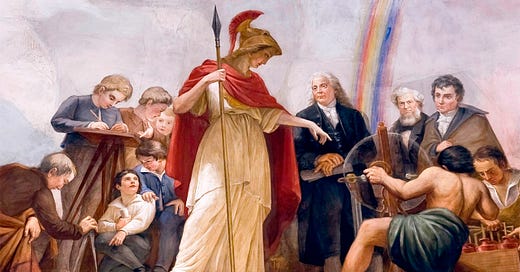The Roots of Capitalism and Statism in the West
Unraveling the Philosophical Tapestry of Western Economic Systems: From Ancient Roots to Modern Challenges
Keep reading with a 7-day free trial
Subscribe to The Objective Standard to keep reading this post and get 7 days of free access to the full post archives.




